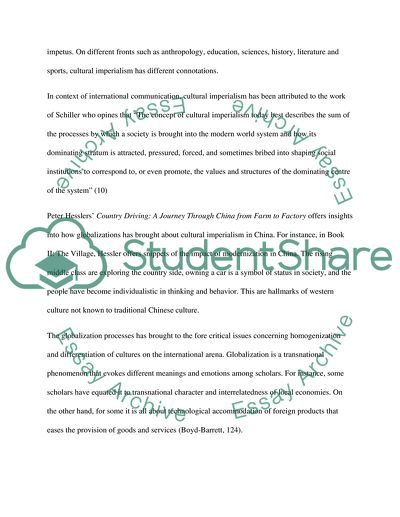Cite this document
(“Cultural Imperialism in China Essay Example | Topics and Well Written Essays - 750 words”, n.d.)
Retrieved from https://studentshare.org/history/1701608-cultural-imperialism-in-china
Retrieved from https://studentshare.org/history/1701608-cultural-imperialism-in-china
(Cultural Imperialism in China Essay Example | Topics and Well Written Essays - 750 Words)
https://studentshare.org/history/1701608-cultural-imperialism-in-china.
https://studentshare.org/history/1701608-cultural-imperialism-in-china.
“Cultural Imperialism in China Essay Example | Topics and Well Written Essays - 750 Words”, n.d. https://studentshare.org/history/1701608-cultural-imperialism-in-china.


